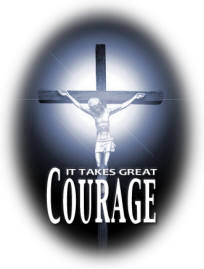Catholic News Agency columnist Matt McGuiness yesterday published part two in his series “A Second Look at Porn, which I read with interest, having heavily criticized the first installment.
The new column has many improvements over the first. Although I could do without the lighthearted characterization of pornographic images as “naughty nudes,” which betrays a lack of sensitivity to sin, I am glad to see that this time McGuiness at least does not make a joke about a teenage girl being sodomized.
Theologically, McGuiness appears to be building an argument that we as human beings made for communion with God have an inbuilt desire for the infinite, which pornography by its nature cannot satisfy. That is the Good News, to be sure, and I appreciate his seeking to share it.
But … but … I have to ask …
… why does McGuiness, in two columns in a row, lump in frequent confession with “twelve-step programs” and pious devotions (e.g. the rosary), as though it were of the same order as non-sacramental means of healing? Why does he feel moved to tell Catholics that the true believer who seeks to overcome attraction to pornography need not rely on such “distractions” as frequent confession? Why does he seek to reduce frequent confession to the level of “novenas” and other things that he effectively dismisses as Catholic time-wasters?
In his first column, McGuinness derided Catholic “moralists” who advise those seeking to recover from pornography addiction to make frequent recourse to the Sacrament of Reconciliation:
The moralists out there would tell us that the solution to the scourge of porn is “virtue” or self-control or some twelve step program or perhaps intensely frequenting the sacrament of reconciliation; while not discounting the value of confession or the usefulness of AA-type programs in dealing with sexual addictions, I must insist that virtue is a consequence of something else, not something that can be gotten at directly as it were. …. No, the solution is not to be found in mortification or penance alone, but in beginning to take our own humanity seriously; seriously enough to go to the depths of the inner meaning of our Baptism, which incorporated us into the Body of Christ, in the flesh.
To which Catholic Lane’s Kevin Tierney responded ably in “A Second Look at Confession,”
He has managed to treat the topic of confession without ever referencing the sacramental nature of the Sacrament of Confession. In his Apostolic Exhortation on Reconciliation and Penance, Blessed John Paul II said the following:
“But as it reflects on the function of this sacrament, the church’s consciousness discerns in it, over and above the character of judgment in the sense just mentioned, a healing of a medicinal character. And this is linked to the fact that the Gospel frequently presents Christ as healer, while his redemptive work is often called, from Christian antiquity, medicina salutis. ‘I wish to heal, not accuse,’ St. Augustine said, referring to the exercise of the pastoral activity regarding penance.'”
Seen from this perspective, there is no longer any wonder why the “moralists” would advise “intensely frequenting the Sacrament of Reconciliation.” Elsewhere in the Exhortation, we are told that there is no “more significant, more divinely efficacious, or more lofty and at the same time easily accessible” as the Sacrament of Confession. Yet when we read about overcoming pornography from Mr. McGuiness (and other popular writers), they almost never mention Confession.
Confession isn’t just something we do. We confess our sins — if that were all Confession is, then yes, we really shouldn’t be spending that much time on it, or speaking of it in such lofty terms — but then, God absolves us. In this sacrament, God provides grace to us, grace won through the Precious Blood of the Cross. This grace has the effect not just of absolving us from our sins, but of restoring us to what we originally were, and what we were originally called for. If pornography is a sickness, only medicine can cure it. It is impossible to “take our own humanity seriously” without Confession. Now we who are already converted understand this, or should. But what of the unconverted who know nothing of Confession? If they read Mr. McGuiness’ article, they’d see scant reference to it, and then only as something that isn’t terribly important.
If McGuiness read Tierney’s critique, his latest CNA column doesn’t show it. Instead, he digs in his heels—again ridiculing those who promote frequent Confession. This time, he compares them to leaders of “multinational corporations”—they “offer us ‘solutions’ that alienate us from ourselves”:
If the multinational corporations have a “wonderful plan” for our lives (and they do), sometimes church people offer us “solutions” that alienate us from ourselves no less than the spinning wheel of production and consumption. Some within the Church will tell us to ignore the infinite need that makes our hearts restless and just plunge into Catholic practices and pious devotions. Never mind the meaning, “Just do it.” Here’s a sample checklist: start going to daily Mass, pray the rosary, make a holy hour, try this novena, frequent confession more often, do some twelve step program, go to a Catholic conference, be virtuous. You get the picture.
Rather than getting at the source of dis-ease, the checklister would have us multiply activities. This mentality derives from that English proverb “Idle hands are the Devil’s workshop.” Sure, there are moments when I need to distract myself in order to avoid sin (thus the utility of the proverbial cold shower or St. Francis’ thornbush), but if I live a life of distraction (even if it’s filled with “spiritual” content), I’m living something less than a human life.
By all means, pray regularly, love Jesus, and seek out those people, places and things that bring you to life. But if you approach Christianity with checklist in hand because “that’s what good Catholics do,” you just may find that this is a recipe for alienation and exhaustion, not holiness.
*Sigh* I get it that we should “pray regularly, love Jesus, and seek out those people, places and things that bring you to life.” Fine and dandy. But, once again, I have to ask, what about Confession? Does McGuiness think it does anything other than foster habits of distraction that “alienate us from ourselves” and lead one to live “something less than a human life”? Does he think it is a source of sacramental healing and grace? Was he listening when Pope Benedict XVI said in his homily at Nationals Stadium, “To a great extent, the renewal of the Church in America and throughout the world depends on the renewal of the practice of Penance and the growth in holiness which that sacrament both inspires and accomplishes”?
I urge anyone tempted by McGuiness’s reductive approach to read Marcel LeJeune’s “What Is Wrong with Porn?” for a treatment of the same topic that is not only dynamic, but reverent and faithful. LeJeune is assistant director of campus ministry at St. Mary’s Catholic Center at Texas A&M University, the largest Catholic campus ministry in the United States, and has trained and worked extensively in ministering to people with sex addiction. He actively promotes the work of Christopher West, so he cannot be set aside as a mere “moralist,” to use McGuiness’s pejorative term. In his list of “19 Strategies for Helping Yourself Strive for Purity,” Lejeune gives proper place to frequent Confession, the Eucharist, and devotional prayer, while at the same time expounding the Good News about God’s plan for human sexuality. He also recommends St. Thomas Aquinas’s Prayer for Chastity, one of the daily prayers of the Angelic Warfare Confraternity, a supernatural fellowship of Catholics striving to live chastely of which I am a member.
* * *
On a related note, isn’t it a shame that the writings of Communion and Liberation founder Monsignor Luigi Giussani, whom McGuiness quotes toward the end of his piece, should be used in such a way as to suggest he too would have ridiculed those who promote daily Mass, Catholic devotions, and frequent Confession? In point of fact, Monsignor Giussani advised C&L members to go to Confession “at least once every fifteen days,” and urged them to also take part in other liturgical devotions (as well as Mass) out of “passion and concern for [their] own destiny.” From Volume One of Giussani’s Is It Possible to Live This Way?:
When we read daytime prayer, when we read any of the hours from the liturgy, when we pray, when we go to Communion, go to Confession, which should be at least once every fifteen days, let’s always remember that what determines that act is passion and concern for our own destiny. Please, see whether there’s another aim, another goal more dignified than this, more human than this, and whether it’s human to live without thinking about this.
McGuiness wants readers to encounter Christ in spirit and not just in gestures. It is a laudable aim, and well in line with Giussani’s own. But I would be very surprised if the C&L founder would have supported giving even the appearance of ridiculing one of the foundational means the Church has given us to make our personal encounter with Christ.
UPDATE, 2/8/13: Father Angelo Mary Geiger writes: “I am in agreement with most of what McGuiness says. However, in the interests of making an argument for something important, he does what apologists too often do, which is to minimize those things which are not the thing he wants to emphasize. … This was McGuiness’ second chance and his opportunity to clarify his attitude toward the ascetical life, especially the use of the sacrament of confession. Instead, he stepped up his presentation of the dichotomy. I think McGuiness has something important to say, but he will never succeed in encouraging an authentic education of desire when he seems to be succumbing to naturalism.” Read the rest in his blog entry “In Honor of the Blessed Virgin Mary for the Virtue of Purity.” Kevin Tierney also chimes in with “In Defense of Checklist Catholicism.”











